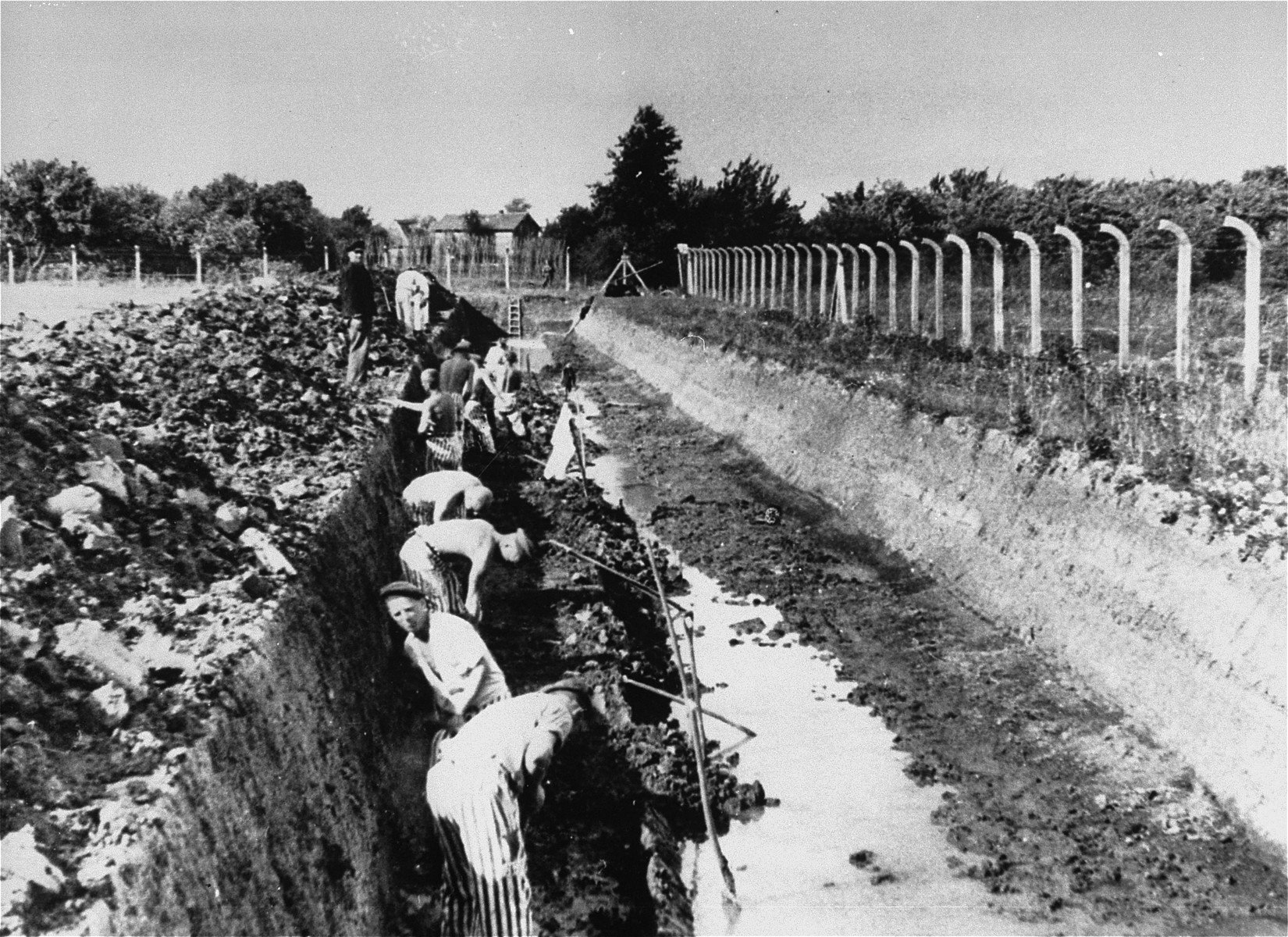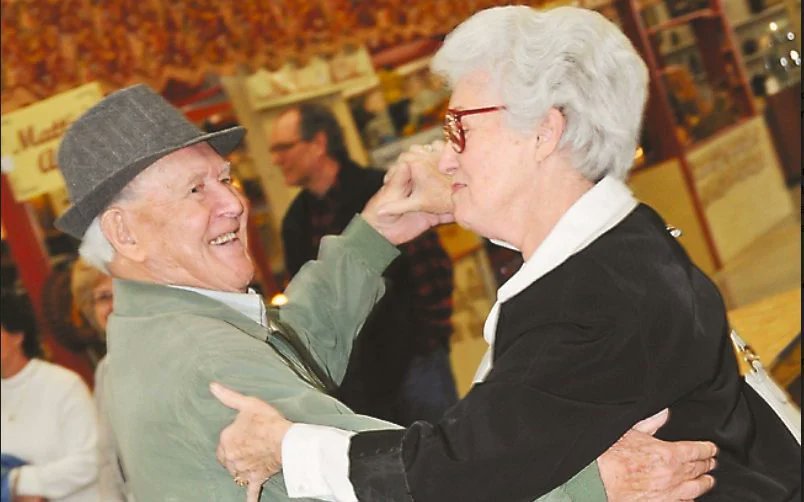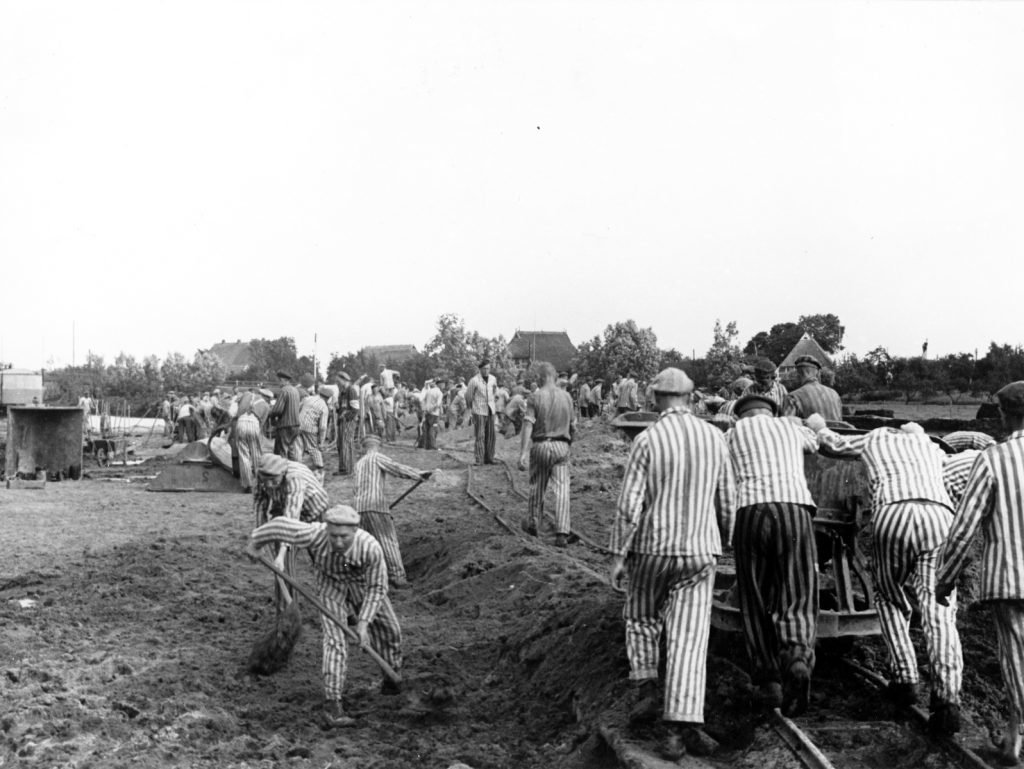Former Nazi Concentration Camp Guard Living in Tennessee Must Be Deported, Court Rules

Forced labor at Neuengamme concentration camp. Photo from US Holocaust Memorial Museum via Wikimedia Commons.
The law never forgets.
Friday marked the 75th anniversary of the Nuremberg trials. The landmark proceedings, held by the victorious Allied powers in the eponymous German city, tried high-ranking Nazi war criminals in the aftermath of World War II.
“In November 1945, Nuremberg was in ruins. Many German cities were in ruins. Our country had been morally and physically razed to the ground,” German President Frank-Walter Steinmeier said on Friday.
Speaking from courtroom 600 at Nuremberg’s Palace of Justice, where the trials of senior Nazi officials began on Nov. 20, 1945, Steinmeier continued: “But here, in this very room, while the rubble was being cleared away outside, the four victorious powers of World War II laid the foundation for the legal order of a new world.”
That legal foundation has faced myriad other crises over the intervening 75 years. And, unfortunately, genocide did not end with the Holocaust. Yet, the hunt for Nazi war criminals isn’t over.
In Tennessee — a place far removed from the former battlefields of Europe, where the deadliest battles of the deadliest war in human history took place — the fight for justice continues. In the enduring memory of all the murdered millions, the US Department of Justice remains committed to holding former Nazis accountable for their crimes.

To that end, the Department of Justice announced Thursday that the Board of Immigration Appeals had rejected an appeal to overturn a deportation order for Tennessee resident Friedrich Karl Berger, a 94-year-old German citizen who served as a Nazi concentration camp guard during World War II. A court ordered Berger to leave the US earlier this year. The denial of his appeal was announced on the eve of the Nuremberg trials anniversary.
“Berger’s willing service as an armed guard at a Nazi concentration camp cannot be erased and will not be ignored,” Brian Rabbitt, acting assistant attorney general in the Justice Department’s Criminal Division, said in a release.
“On the eve of tomorrow’s 75th anniversary of the commencement of the Nuremberg trials of the surviving leaders of the defeated Nazi regime, this case shows that the passage of time will not deter the department from fulfilling the moral imperative of seeking justice for the victims of their heinous crimes,” Rabbitt added.
On Feb. 28, a Tennessee judge ruled that Berger should be removed from the US due to his “willing service as an armed guard of prisoners at a concentration camp where persecution took place.”
The court determined that Berger, who was then 19, had served in 1945 as a guard in the Neuengamme concentration camp system. He was posted to a subcamp near Meppen, Germany. According to Justice, the prisoners of that camp comprised Jews, Poles, Russians, Danes, Dutch, Latvians, French, Italians, and political opponents of the Nazis.
“Berger was an active participant in one of the darkest chapters in human history. He attempted to shed his nefarious past to come to America and start anew, but thanks to the dedication of those at the Department of Justice and Homeland Security Investigations, the truth was revealed,” said Deputy Assistant Director Louis Rodi III of US Immigration and Customs Enforcement’s National Security Investigations Division, which oversees the Human Rights Violators and War Crimes Center.
“War criminals and violators of human rights will not be allowed to evade justice and find safe haven here,” Rodi said.

The February court ruling found that the prisoners under Berger’s watch in the winter of 1945 were held in “atrocious” conditions and, in what was tantamount to slave labor, were forced to work “to the point of exhaustion and death.” In his trial, Berger testified that he guarded the prisoners from “dawn to dusk,” both at their worksites and in transit to and from the SS-run subcamp where they were held.
“Berger was part of the SS machinery of oppression that kept concentration camp prisoners in atrocious conditions of confinement,” said then-Assistant Attorney General Brian Benczkowski of the Department of Justice’s Criminal Division in a March release. “This ruling shows the Department’s continued commitment to obtaining a measure of justice, however late, for the victims of wartime Nazi persecution.”
The Nazi SS imprisoned between 104,000 and 106,000 prisoners in the Neuengamme concentration camp system, which comprised 80 subcamps throughout northern and central Germany between 1938 and 1945. According to the US Holocaust Memorial Museum, some 13,000 Jews were imprisoned in the Neuengamme system during the war. Of that number, those who survived through 1942 were sent to Auschwitz.
“In all, more than 50,000 prisoners, almost half of all those imprisoned in the camp during its existence, died in Neuengamme concentration camp,” the US Holocaust Memorial Museum wrote on its website.
Berger, a German citizen who continues to draw a pension from Germany for his wartime service, testified in February that he took part in the forcible evacuation of the prisoners from his subcamp to the Neuengamme main camp in March 1945, while Canadian and British forces were advancing into the region from the West. That trip took two weeks and was completed in harsh conditions. Under Berger’s watch, some 70 prisoners died on the way, Justice said in a release.
Assistant Attorney General Makan Delrahim Issues Statement Commemorating the 75th Anniversary of the International Military Tribunal at Nuremberghttps://t.co/w0fGnMjSU3
— Justice Department (@TheJusticeDept) November 21, 2020
A resident of Oak Ridge, Tennessee, Berger reportedly moved to the US in 1959 with his wife and daughter. He has two grandchildren, according to news reports. Regarding his trial, Berger told the Washington Post in March: “After 75 years, this is ridiculous. I cannot believe it. I cannot understand how this can happen in a country like this. You’re forcing me out of my home.”
He added: “I was 19 years old. I was ordered to go there.”
The Department of Justice’s Human Rights and Special Prosecutions Section spearheaded the investigation into Berger’s past, as well as his eventual deportation proceeding. Since 1979, Justice has successfully prosecuted 109 Nazi war criminals hiding in the US. Over the past 30 years, the Justice Department has won more cases against Nazi war criminals than “have the law enforcement authorities of all the other countries in the world combined,” the department said in a release.
Since 2003, Immigration and Customs Enforcement has arrested more than 460 individuals for human rights-related crimes. About a dozen Nazis may still be hiding in the US, according to the Simon Wiesenthal Center.
The first Nuremberg trials lasted less than a year. Twenty-four top Nazi officials were indicted by an international court, resulting in 12 death sentences, three life sentences, four long prison terms, and three acquittals. Occupying US military forces conducted a second round of 12 military tribunals in Nuremberg from November 1946 to April 1949.
At the time of writing, the German government has not announced charges against Berger, pending his return to Germany.

BRCC and Bad Moon Print Press team up for an exclusive, limited-edition T-shirt design!
BRCC partners with Team Room Design for an exclusive T-shirt release!
Thirty Seconds Out has partnered with BRCC for an exclusive shirt design invoking the God of Winter.
Lucas O'Hara of Grizzly Forge has teamed up with BRCC for a badass, exclusive Shirt Club T-shirt design featuring his most popular knife and tiomahawk.
Coffee or Die sits down with one of the graphic designers behind Black Rifle Coffee's signature look and vibe.
Biden will award the Medal of Honor to a Vietnam War Army helicopter pilot who risked his life to save a reconnaissance team from almost certain death.
Ever wonder how much Jack Mandaville would f*ck sh*t up if he went back in time? The American Revolution didn't even see him coming.
A nearly 200-year-old West Point time capsule that at first appeared to yield little more than dust contains hidden treasure, the US Military Academy said.












